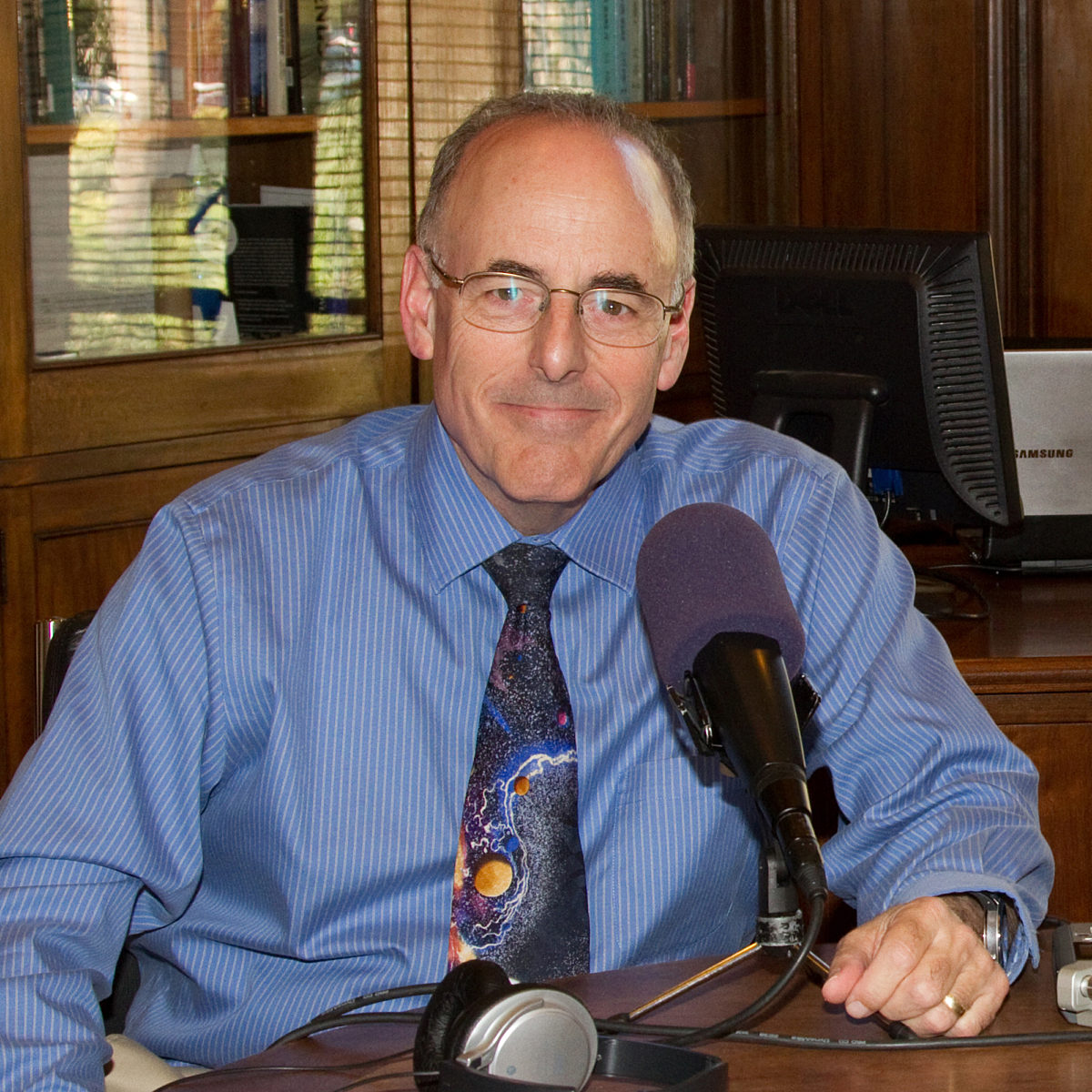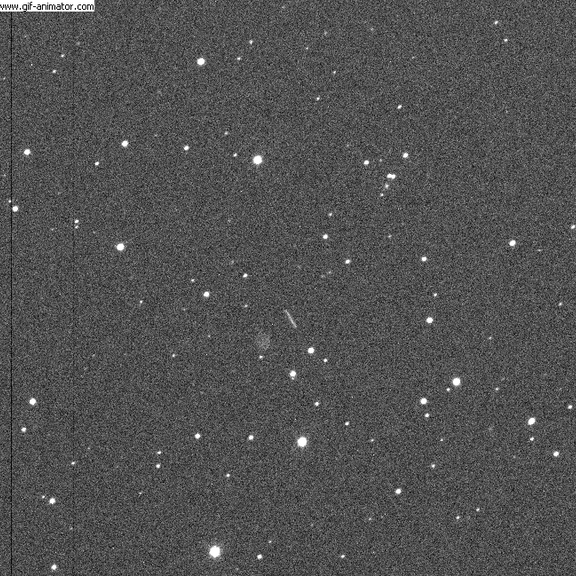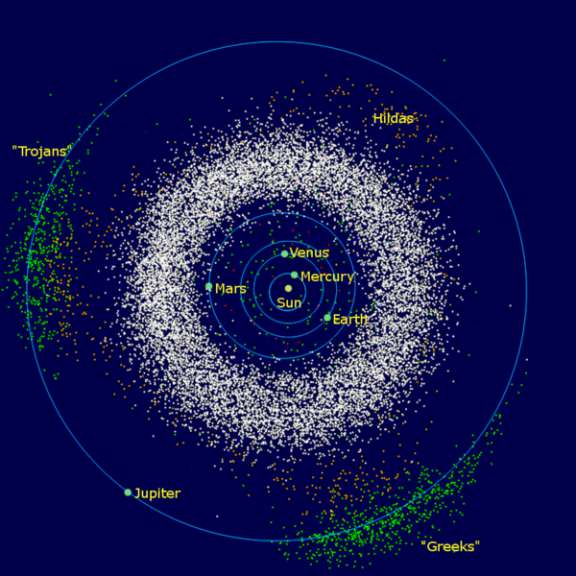All
All
Stories, updates, insights, and original analysis from The Planetary Society.
An Amazing Evening for Planetary Defense
Bill Nye, Bruce Betts, Mat Kaplan, Meteorite Man Geoffrey Notkin and stars of planetary science at the Planetary Defense Conference public event in Flagstaff.
Planetary Society Weekly Hangout: Being WISE about asteroids, comets, and brown dwarfs with Amy Mainzer
This week I'll be talking with NEOWISE principal investigator Amy Mainzer about moving objects that the WISE mission has spotted both inside and outside our solar system.
Vermin of the Sky
Executive Director Emeritus Louis Friedman writes about Asteroid programs of The Planetary Society.
Observing 2012 DA14
Mostly the Universe stays unchanged for hundreds, thousands or even millions of years. There are some cases however when some things change really rapidly. Recently I observed one of these rapidly changing, transient phenomena, as asteroid called 2012 DA14. I work for Las Cumbres Observatory and we have been trying to observe this asteroid since 5 February.
BREAKING: Meteor fall causes damage in Russia [UPDATED]
A large meteor streaked through the skies above Russia on the morning of Feb 15th, causing a deafening sonic boom that shattered windows and injured hundreds.
What We Know About the Russian Meteor Event [UPDATED]
Preliminary estimates show that the meteoroid was 15 meters wide and weighed roughly 8000 tons. The resulting airburst would have the equivalent yield of about a 1/2 megaton explosion.
DPS 2012: Future impact risks
Continuing my writeup of notes from last week's Division for Planetary Sciences meeting: presentations on the risks of future asteroid impacts. How much risk do we face, and what are the appropriate actions to take in the face of that risk?
Zapping Rocks with Lasers to Save the World
The Planetary Society Laser Bees project in Scotland is studying in the lab a potential new technique for deflecting dangerous asteroids: laser ablation.
Hunting Asteroids from a Field in Kansas
TPS Shoemaker NEO Grant Winner Gary Hug hunts near Earth objects from his back yard in Kansas. NPR's Morning Edition picked up on this fascinating story.
More Evidence for Impact Origin for Colombia’s Vichada Structure
Evidence continues to pile up that the Rio Vichada structure in Colombia is indeed the largest impact structure in South America.
La Sagra Observatory discovers very near-Earth asteroid 2012 DA14
With a new CCD camera configured to shoot rapid, short exposures bought with a Planetary Society Shoemaker NEO Grant we caught near-Earth asteroid 2012 DA14.
New "Snapshot From Space": Defending Our Planet
A new installment of our
A rare direct hit from a meteorite
Meteorites hit Earth all the time, but they almost never score direct hits on human-built structures (or humans, for that matter). Once in a while, though, direct hits do happen, and it looks like this recent event in Poland was the real thing.
Close approach to Earth turns Apollo into Aten
Last week we got buzzed by a very small asteroid, something that happens fairly often. But there were several details that made the close approach of asteroid 2011 CQ1 worthy of note.
Early warning for close approaches of two house-sized asteroids
Most of you have probably heard by now of two small asteroids, both in the neighborhood of 10 meters in diameter, recently discovered on trajectories that pass unusually close to Earth.
The Potential to Destroy Civilization? Now on YouTube
Visualization can help the brain comprehend what words and numbers can struggle to covey. There's a YouTube video posted by
One month, one journal, so many missed space stories!
Or: Emily reads you the table of contents of Icarus.
Arecibo saves us from another potentially hazardous asteroid
That's a bit of an overdramatic title, but it's true that the most efficient way for us to reduce the risk we face from asteroids that have a very small chance of hitting Earth in the future is to determine their orbits more precisely.
Propose for a Shoemaker Near Earth Object Grant
Are you a serious amateur astronomer who enjoys the challenge of following up on the discoveries of faint near-Earth objects?
Inside the U.N.'s Near Earth Object Working Group
This week Bruce Betts is attending a U.N. meeting in Austria, in particular the parts focused on international considerations of the near-Earth object threat.


 Explore Worlds
Explore Worlds Find Life
Find Life Defend Earth
Defend Earth


 Sun
Sun Mercury
Mercury Venus
Venus Earth
Earth Mars
Mars Jupiter
Jupiter Saturn
Saturn Uranus
Uranus Neptune
Neptune Small Bodies
Small Bodies













